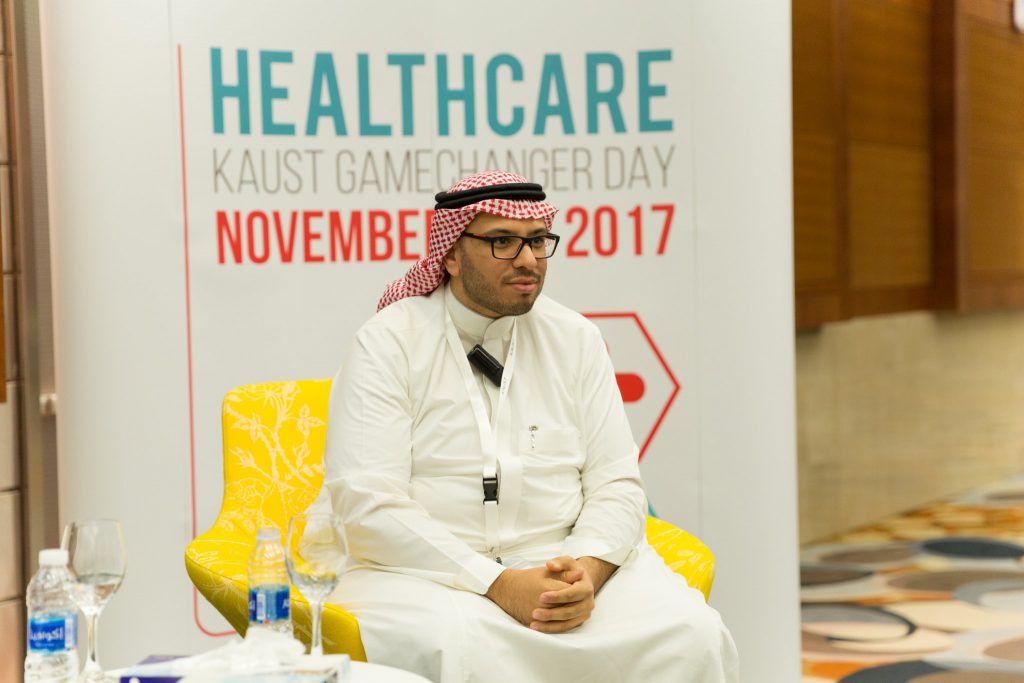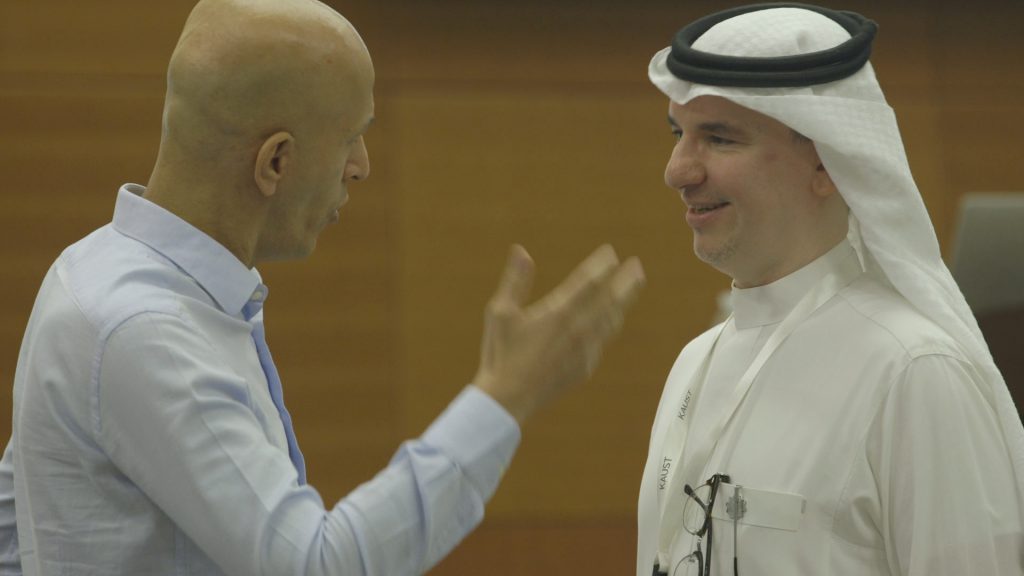KAUST Innovation & Economic Development hosted a Gamechanger Day to ignite discussion about healthcare and entrepreneurship in Saudi Arabia.
Saudi Arabia is on the brink of a major healthcare transformation from a Government-led system to a privatized one.
The Saudi Government is currently the largest provider of healthcare; servicing approximately 60% of beds across the country’s 462 hospitals. And with one of the fastest growing populations in the GCC (the number of elderly people are expected to double by 2020), there is a growing need for Government innovation and healthcare entrepreneurship.
Responding to the challenge, KAUST Innovation & Economic Development ignited the conversation at its first ever Healthcare Gamechanger Day. Key figures from government, academia and the private sector came together at KAUST to discuss how entrepreneurship can disrupt the traditional model of healthcare in Saudi Arabia.
Opening the day, Dr. Pierre Magistretti, Dean of Biological and Environmental Engineering and Science at KAUST, called the title, “ambitious” but reflective of KAUST as a key player in innovating Saudi Arabia’s healthcare system. He explained that KAUST is ideally positioned to be a “Bio-Innovation Bridge,” acting as a catalyst for an integrated ecosystem of academia, hospitals, industry, service providers and investors.
Added to that mix were 7 Saudi-based healthcare startups: Algorizm, Noor Dx, Cura, BioTags, PepPrint, Dartec and Sihatech. Each of these entrepreneurs were selling the idea of innovation. And for a notoriously risk-averse industry, innovation was something that this group was not shying away from. Healthcare providers – from the Ministry of Health (MoH) to insurer Saudi Enaya – were all looking to engage with entrepreneurs to provide new solutions to sticky healthcare problems.
“Biotech innovation is one of the main pillars of the fourth industrial revolution,” says Hattan Ahmed, a startup advisor at the KAUST Entrepreneurship Center. “There are good number of biotech startups that are coming out of KAUST Research labs that can create local and global impact.”
One standout from the group was KAUST startup Noor Dx. The company is launching in mid-2018 and will provide the first internationally accredited end-to-end solution for genome sequencing, analysis and reporting within the Kingdom.
During the roundtable discussions, the critical issue of access to innovative healthcare technology, like telemedicine – and how companies like Cura can fill that need – was discussed.
Dr. Essam Masoud, Chief Medical Officer of insurer Saudi Enaya, said his company was looking into how technology can help bridge the access gap. “By using digital medicine – or e-health, where devices are distributed to insured members or patients, then they can communicate directly with their physicians for a prescription or get advice – it’s all helpful.”
A true gamechanger, and driving force behind innovation of the Saudi healthcare system, is Dr. Rashed Kawan, Assistant Deputy Minister for Transformation in the Ministry of Health. He opened his presentation by simply stating, “If you are going to reform, you have to come up with innovative solutions.”
Dr. Kawan’s focus is to completely shift the model of how healthcare in Saudi Arabia is delivered, financed and regulated. Through corporatization of the healthcare services, the care will be pushed away from hospitals and towards the community with a focus on prevention and primary care. He emphasized that in the next few years, the MoH will no longer be a healthcare service provider, and will instead provide policy-making and regulation oversight.
Ending the day, Mustafa Magdar, Investment Director at Saudi Aramco Entrepreneurship Center, encouraged companies to bring their innovative ideas forward. “I am looking at 3 to 4 startups right now that we are going to meet with in the next week,” he explained as the closing speaker to the crowd. “This is our job. We are willing to take the risk.”



